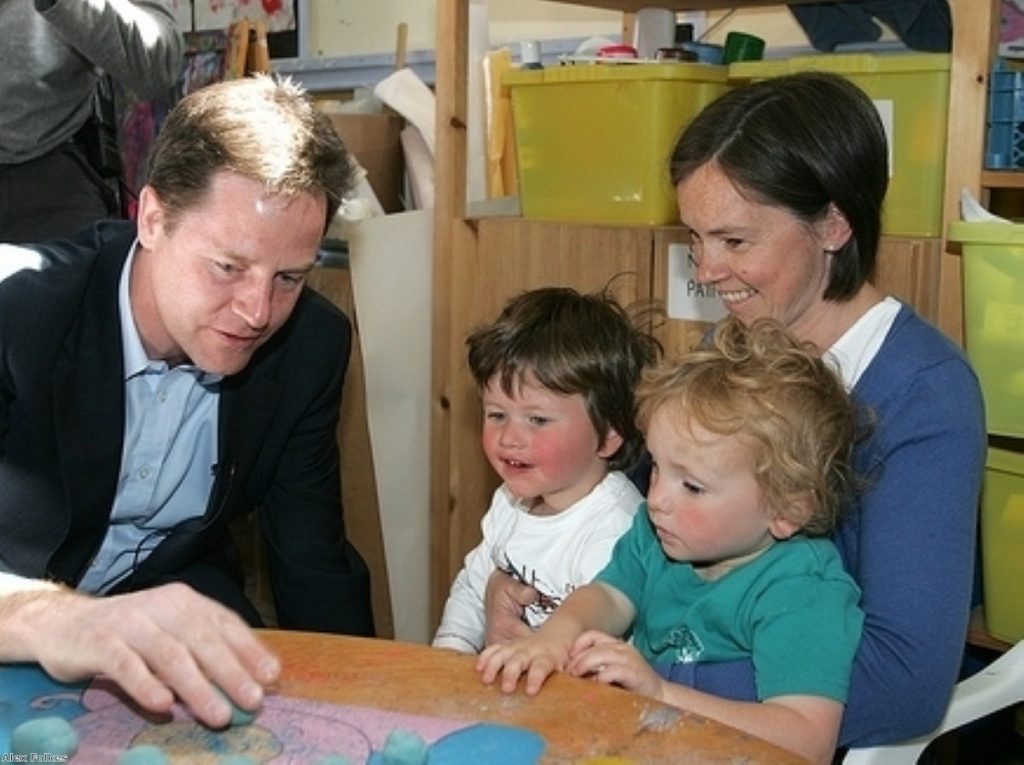Clegg: The failure of our generation
By politics.co.uk staff
Nick Clegg has tried to link the deficit reduction plan with a wider argument about the culture of political short-termism in government, saying the trend is a symptom of the failure of his generation.
The deputy prime minister quoted John Stuart Mill, Oscar Wilde and American philosopher John Rawls in a bid to convince his audience that British society had become too obsessed with immediate gratification.
“Our political culture and our society generally has become too focused on immediate needs and demands and not enough on looking to the future,” he told the Institute for Government.


“It’s vital the government leads by example.
“This generation has a duty to alleviate the burdens and challenges faced by the next.”
He added: “Our horizons have shortened just as the timeframe of our problems has lengthened.”
The deputy prime minister lamented what he called “initiative-itis” in previous governments with daily policy announcements designed to give an administration the appearance of progression and activity, while its long-term goals are left by the wayside, leaving the political process “myopic”.
Mr Clegg suggested that the government would no longer reshuffle Cabinet positions on an almost annual basis – as happened under New Labour.
“This government recognises that constant reshuffling of ministerial desks is not conducive to good government,” he said.
Mr Clegg is furiously trying to tag the deficit reduction plan to distinct liberal narratives in a bid to field off a serious rebellion in Lib Dem ranks when the cuts to public spending begin.
Mr Clegg answered a question about this likelihood saying that “people will understand that [a return to prosperity] is not going to happen overnight”, and promised that the government will focus on the “light at the end of the tunnel”.
While support among the public for cutting the deficit continues to be high according to polling, it remains to be seen if this support will hold up once the specific effects on individuals and services become known.
The coalition will be fervently hoping that its inevitably painful economic medicine will start to show significant signs of recovery by the time of the next election.
If recovery does proceed as the government hopes, Labour’s arguments against rapid deficit reduction will lose credibility. If it does not, the opposition stands to gain most politically.
The speech comes six weeks before the autumn spending review.












